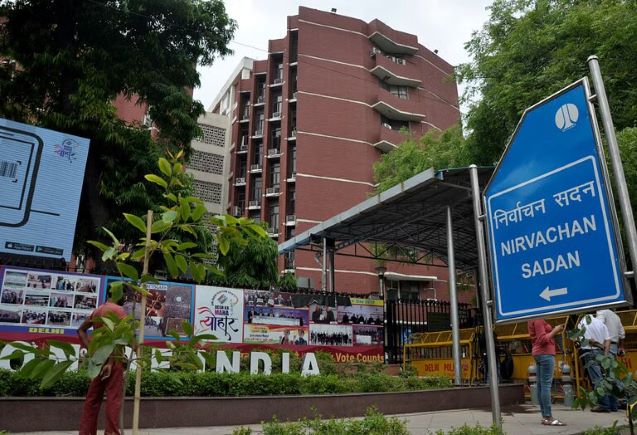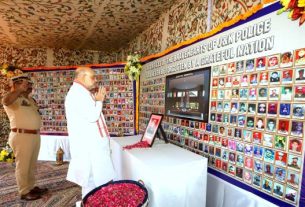Jammu: Jammu and Kashmir National Conference (JKNC) and Jammu and Kashmir Peoples Democratic Party (JKPDP) from J&K are among 57 recognised regional (state) political parties invited by the Election Commission of India (ECI) to participate in the RVM demonstration and discussion on “Improving voter participation of domestic migrants using remote voting” on January 16 in New Delhi.
As per ECI communiqué, the objective of meeting is to solicit the views of the recognised national and state political parties, as the most important stakeholders in the electoral process, in the matter to effectively recommend required legislative changes, changes in administrative procedures and finalise voting method or technology – Remote Electronic Voting Machines (RVMs).
“It is in the context and desirability of ensuring that domestic migrants are able to exercise their franchise to improve participation and deepen democracy further,” ECI has specified.
Though the ECI in its invite has asked the political parties to depute two representatives yet the communiqué by the office of the J&K Chief Electoral Officer to NC and PDP has not specified the number of persons to be deputed. So far, the National Conference has decided to send only one representative.
“JKNC treasurer Shammi Oberoi will be the only representative from our party taking part in the deliberations of the ECI meeting,” said JKNC spokesperson Imran Nabi, responding to a Greater Kashmir query about its two representatives.
In the meanwhile, PDP have decided to send its chief spokesperson along with two more representatives in the meeting.
“PDP chief spokesperson Suhail Bukhari joined by two other senior leaders of party viz., Satpal Singh Charak and Rajinder Manhas will participate in the meeting,” said a PDP leader, who wished not to be quoted.
In all, ECI has invited eight national and fifty-seven regional political parties to be part of the deliberations. The meeting and RVM demo will take place in the presence of ECI’s Technical Expert Committee.
The ECI has also solicited the views of political parties on the specified issues for legal, administrative and statutory changes to bring in clarity on the subject, by January 31.
Earlier on December 29, the ECI, in its press release, revealed that it had developed a prototype Multi-Constituency Remote Electronic Voting Machine (RVM) which can handle multiple constituencies from a single remote polling booth.
Specifying the need as to why it was necessary, the ECI had mentioned that “it was concerned about the issue of over 30 Cr electors not exercising their franchise and also differential voter turnout in various states/UTs.”
“It is understood that there are multifarious reasons for a voter not opting to register in a new place of residence, thus missing out on exercising the right to vote. Inability to vote due to internal migration (domestic migrants) is one of the prominent reasons to be addressed to improve voter turnout and ensure participative elections. Although there is no central database available for migration within the country, the analysis of available data in public domain points to work, marriage and education related migration as important components of domestic migration. Out-migration is predominant among the rural population in overall domestic migration. Approximately 85 percent of the internal migration is within the states,” it had pointed out.
With the objective of finding a technological solution “which is credible, accessible and acceptable to all stakeholders”, the Commission explored the option of using a modified version of the time-tested model of M3 EVMs to enable voting at remote polling stations i.e., polling stations outside home constituency, for domestic migrants. The migrant voter would thus need not travel back to his/her home district to exercise his/her franchise of voting.
As per ECI release, these remote voting booths would also cater to voters of multiple constituencies of state. Remote Polling Booths may as a pilot be set up within the State in an election to the state legislature to tackle the issue of migrant voters within the State. The migrant voter need not travel back to his/her home state/ district/ constituency to exercise his/her franchise of voting.__GK News





